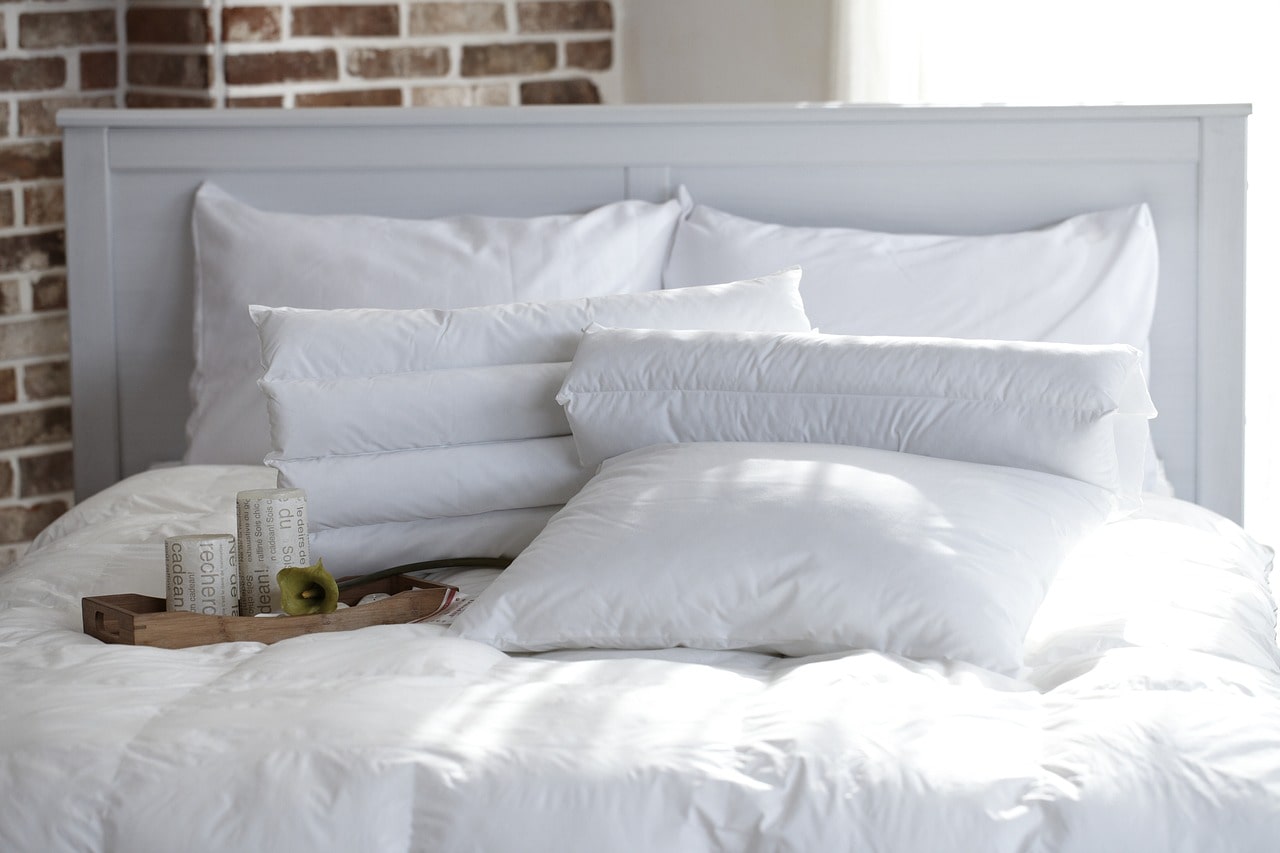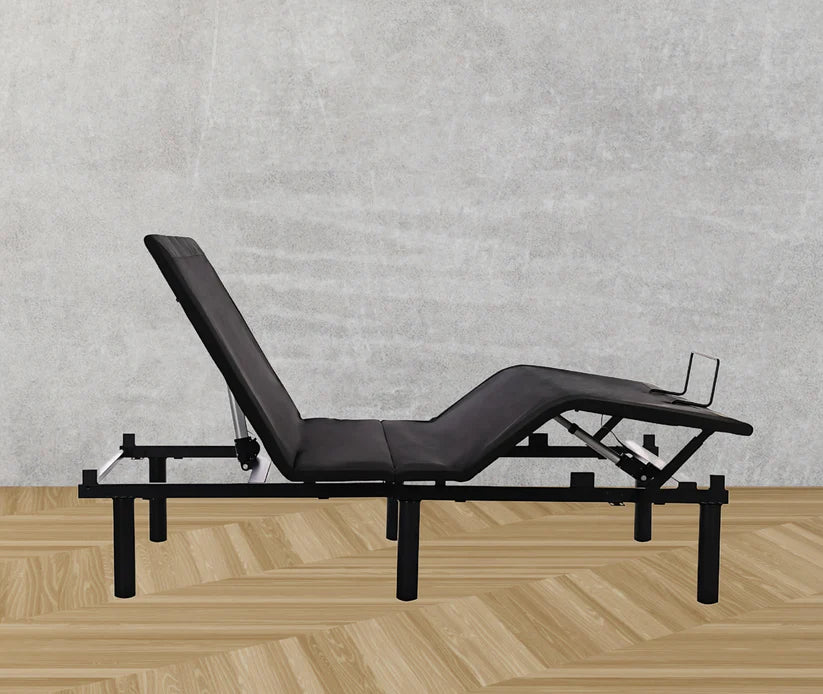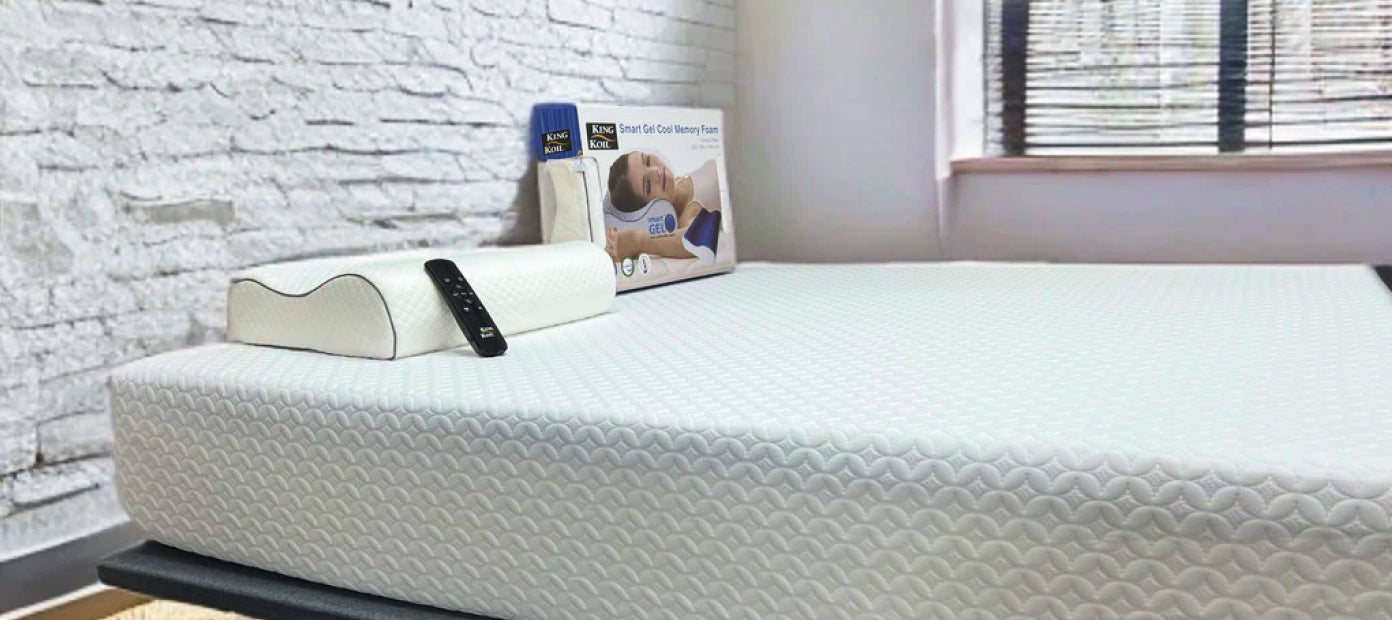How to Choose the Best Pillow for Better Sleep in 2024
Many people experience neck pain or restless nights due to using the wrong pillow.
The wrong pillow choice can lead to misalignment, discomfort, and poor sleep.
If you’ve ever woken up with a sore neck or needed to frequently adjust your pillow throughout the night, then you may need a new pillow.
We’ve created this guide to help you choose the right pillow based on your sleep position and material preference, so you can wake up pain-free and well-rested.
What to Know Before You Start
- Sleep Position: Side sleepers need firmer, high-loft pillows; back sleepers do best with medium loft; stomach sleepers benefit from softer, low-loft pillows.
- Pillow Materials: Memory foam, down, and latex offer different levels of support—choose based on your comfort and support needs.
- Personal Comfort: Consider firmness and loft to ensure your pillow provides the right feel and support for restful sleep.
Different Types of Pillows and Their Benefits
Memory Foam Pillows
Memory foam pillows conform to the shape of your head and neck, offering personalized support that adjusts to your sleeping position.
The material is responsive to heat and pressure, helping to alleviate pressure points and maintain proper spinal alignment.
These pillows are especially beneficial for those who suffer from neck pain or need extra support during sleep.
Memory foam pillows also retain their shape over time, making them a long-lasting option for consistent comfort.
Feather or Down Pillows
Feather and down pillows offer a soft, plush sleeping experience, making them a luxurious choice for those who prefer a more cloud-like feel.
Feather pillows are generally lighter and more malleable, allowing you to adjust the filling for a customized level of support. However, they provide less structure compared to other pillow types, which may not be ideal for people who need firmer support for their neck and spine.
Despite this, the softness and breathability of down pillows make them perfect for stomach sleepers or those who enjoy a softer sleep surface.
Latex Pillows
Latex pillows are known for their firm, resilient support, making them ideal for back and side sleepers who require consistent neck and shoulder alignment throughout the night.
Made from natural or synthetic latex, these pillows are hypoallergenic, durable, and resistant to dust mites, making them a great choice for allergy sufferers.
The firm structure of latex pillows also helps prevent the neck from sinking too deeply, ensuring proper alignment. Additionally, latex pillows have natural cooling properties, promoting a more comfortable sleep for hot sleepers.
How Pillow Firmness Affects Sleep Quality
Soft:
Soft pillows are ideal for stomach sleepers, as they provide gentle support without lifting the head too high, which can strain the neck.
For stomach sleepers, a soft pillow can prevent neck discomfort and promote better overall sleep by keeping the body in a more natural alignment throughout the night.
However, those who prefer more structure or firmness may not find a soft pillow suitable for long-term use.
Medium:
Medium-firm pillows strike a balance between softness and support, making them perfect for back sleepers.
These pillows offer enough support to keep the head and neck aligned with the spine, helping to reduce strain and promote a neutral sleeping posture.
Back sleepers benefit from the moderate elevation that medium pillows provide, ensuring that their neck doesn’t bend too far forward or backward during the night.
This level of firmness also helps distribute weight evenly, which can lead to better sleep quality and less neck pain in the morning.
Firm:
Firm pillows are essential for side sleepers because they provide the necessary support to fill the gap between the neck and shoulder.
When sleeping on your side, it's important that the head is aligned with the spine to prevent strain or misalignment.
A firm pillow helps maintain that alignment, offering sufficient height and structure to support the head comfortably while keeping the neck level with the rest of the body.
This firmness can reduce pressure points and ensure side sleepers wake up without discomfort or stiffness in the neck or shoulders.
Specialty Pillows for Added Comfort and Support
Cooling Pillows
Cooling pillows are perfect for hot sleepers or those who experience night sweats. Made with breathable materials and cooling gels, these pillows help regulate body temperature for a more restful sleep.
Neck Pillows
Neck pillows are designed for people who need extra cervical support, especially during travel or for those who sleep in seated positions. These pillows help maintain neck alignment and prevent stiffness.
Bolster Pillows
Bolster pillows offer versatile support, whether used under the neck, back, or knees. They are ideal for promoting healthy spinal alignment during sleep or while resting.
Wedge Pillows
Wedge pillows provide angled support for those who need elevation for their head, legs, or back. They are especially helpful for people with acid reflux, sleep apnea, or circulation issues.
Knee Pillows
Knee pillows are great for side sleepers, helping to align the hips, pelvis, and spine by placing them between the knees during sleep. They reduce pressure on the lower back.
Body Pillows
Body pillows offer full-body support and are popular among pregnant women, side sleepers, and those who want to align their body while sleeping. They can reduce discomfort in the hips, back, and neck.
How to Choose the Right Specialty Pillow
Finding the perfect pillow goes beyond just your sleep position—it’s about addressing specific comfort and health needs.
Specialty pillows are designed to provide targeted support for different areas of the body, ensuring a restful, pain-free night’s sleep.
Here’s how to choose the right one based on your needs:
Hot Sleepers: If you tend to overheat during the night, a cooling pillow is your best option. These pillows feature breathable materials like cooling gel or moisture-wicking fabric that help regulate your body temperature, preventing night sweats and promoting uninterrupted sleep.
Frequent Travelers: For those constantly on the go, a neck pillow or travel pillow is essential. These pillows are compact and designed to cradle your neck during long flights or car rides, ensuring your neck stays aligned and free from stiffness even when you’re sitting upright.
People with Back Pain: If you suffer from back pain or need elevation for better comfort, a wedge pillow is an excellent solution. It elevates your upper body, helping with conditions like acid reflux or snoring. You can also use a wedge pillow under your legs to improve circulation. A body pillow can also provide full-body support, keeping your spine aligned and reducing pressure on your lower back.
Side Sleepers Needing Extra Support: Side sleepers can benefit greatly from a knee pillow. By placing it between your knees, you help align your hips, pelvis, and spine, reducing strain on your lower back. This can be particularly helpful for those who experience discomfort in the hips or lower back.
Pregnancy Support: A body pillow is a popular choice for pregnant women. It offers full-body support and helps relieve pressure on the hips, back, and abdomen, making it easier to find a comfortable sleeping position.
Better Posture While Resting: Bolster pillows are versatile options that can support your neck, back, or legs. Whether you need extra lumbar support while sitting or better spinal alignment while sleeping, a bolster pillow can be used to enhance comfort in a variety of positions.
Choosing the right specialty pillow not only improves your sleep but can also help address specific health and comfort concerns, making a huge difference in how well-rested and pain-free you feel each morning.
How Often Should You Replace Your Pillow?
Most pillows should be replaced every 1-2 years, depending on the material and how well they hold their shape.
If you notice lumps, sagging, or discomfort in your pillow, it’s time for a new one.
Choosing the Best Pillow for Your Sleeping Position
Your sleep position plays a crucial role in finding the pillow that provides proper support for your spine, neck, and head.
The goal is to match your pillow to your sleep habits, whether you sleep on your back, side, or stomach.
Stomach Sleepers
Sleeping on your stomach can strain the spine, so a soft, low-loft pillow is ideal to reduce this tension.
Down or feather pillows are great for stomach sleepers, as they’re more compressible and less firm.
If you sleep partway on your stomach and part way on your side, a body pillow may offer additional support, helping to maintain alignment while still being comfortable.
Side Sleepers
For side sleepers, a pillow that’s 4 to 6 inches high works best, as it keeps the neck aligned with the spine by filling the space between your shoulder and head.
Medium to firm pillows like memory foam or latex provide the necessary structure for proper support.
To maintain full-body alignment, consider using a body pillow. A body pillow can be hugged while part of it rests between your knees, helping to keep your hips, pelvis, and spine in proper alignment, which reduces strain on your lower back.
A pillow between your knees can help keep your hips, pelvis, and spine aligned, reducing strain on your lower back.
Back Sleepers
If you sleep on your back, you’ll need a pillow that supports the natural curve of your neck.
A medium-thickness pillow works well to maintain neck alignment. Memory foam is a great option as it molds to your shape, offering consistent support throughout the night.
Pillow Maintenance Tips
- Fluff and Air Out: Regularly fluff your pillow to maintain its shape and air it out to prevent moisture buildup.
- Washing: Some pillows can be machine-washed (e.g., down or synthetic pillows), while others, like memory foam or latex, require spot cleaning. Always check the care label for instructions.
- Use a Pillow Protector: A pillow protector helps keep your pillow clean, shielding it from dust mites, allergens, and sweat.
- Replacement: Replace your pillow every 1-2 years to ensure it remains supportive and hygienic for better sleep quality.
Find Your Perfect Pillow for Better Sleep
The right pillow depends on your sleep position, material preference, and comfort level.
Pillow size also plays a role in comfort—side sleepers typically need thicker pillows, while back and stomach sleepers may prefer medium or thinner options.
At Sleep Shop, we offer a variety of pillows tailored to your needs, whether you sleep on your side, back, or stomach.
Explore our full collection of pillows tailored for every sleep style.
FAQ
What type of pillow is best for side sleepers?
A firm, high-loft pillow is ideal for side sleepers as it helps maintain proper spine alignment.
How often should I replace my pillow?
Most pillows should be replaced every 1-2 years, or sooner if they lose their shape or support.
Are memory foam pillows good for neck pain?
Yes, memory foam pillows provide excellent support and can contour to the shape of your neck, which helps reduce neck pain.
Can I wash my pillow?
Many pillows, like down or synthetic options, can be machine-washed, but always check the care label.
Memory foam and latex pillows usually require spot cleaning. Use a pillow protector to help keep your pillow clean and extend its lifespan.
What Is the Best Pillow Based on Sleeping Position?
The best pillow depends on your sleeping position and preferred material:
- Side Sleepers: A memory foam or latex pillow offers firm support and contours to your neck, helping to maintain proper alignment.
- Back Sleepers: A down or medium-firm memory foam pillow provides just enough support to keep your head and neck aligned without pushing them forward.
- Stomach Sleepers: A soft down or low-loft latex pillow prevents neck strain by keeping your head closer to the mattress, maintaining a neutral spine.






Leave a Comment
Your email address will not be published. Required fields are marked * Comments must be approved before they are published.